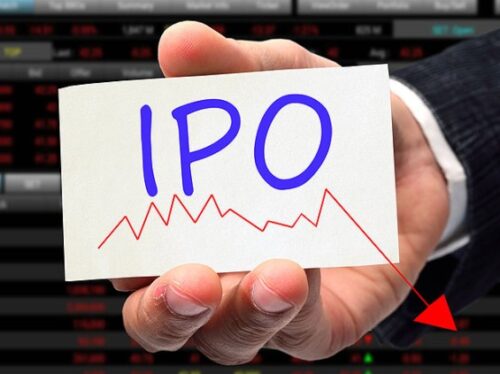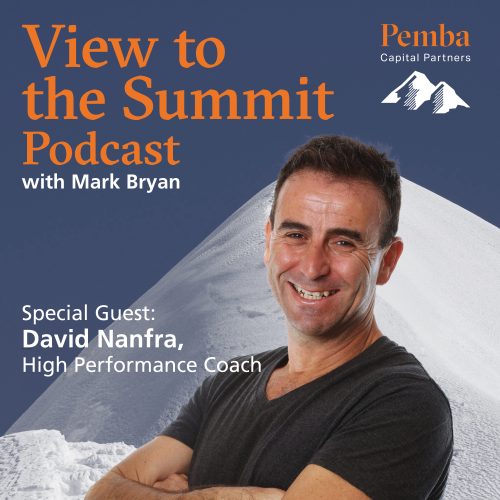Tom Matthews
Australia is experiencing a rapidly ageing workforce and is about to undergo the largest generational shift in 60 years, as Baby Boomers implement succession plans and finally retire. Their vacated executive positions and managerial roles will most likely be filled by up-and-coming Millennials, if they haven’t already. This transition creates a considerable challenge for business in Australia.
The Millennial generation have very different needs and motivations from the generations before them. Understanding these and how to get the best out of the up-and-coming Millennials will be key not just for private equity-backed businesses but for all businesses in Australia.
The impending generational shift
Millennials are those who were born between 1980 and 2000. Millennials are soon to dominate our workplace. In fact, within the next five years, figures estimate that in Australia alone they will comprise almost 75% of the workforce. And by 2025, more Millennials than Boomers will be in leadership positions across all industries.
It’s therefore not surprising that c.80% of Australian CEOs said their biggest concern was how Millennials’ differing needs would change the way companies do business. With Millennials set to wield significant influence on the future of work, understanding their motivations, expectations and attitudes towards the workplace will enable business to capitalise on their talent toward opportunity and growth.
Understanding the Australian millennials
To understand how to get the best out of the Australian Millennials, it is important to understand the various economic and social factors that have shaped this generation. A discussion paper prepared by Haworth and Work Collectiv, noted some common characteristics of Australian Millennials:
- Optimistic but sheltered – Australian Millennials have been shaped by one of the best economic periods Australia has seen, the wealth and lifestyle benefits of dual income families having sheltered them from harsher economic realities and responsibilities. These conditions have helped produce an optimistic, socially-focused and self-assured group. However, in some cases, this privileged insulation can result in a lack of resilience, when compared to previous generations. Until COVID-19, the main economic test for Millennials was the GFC and studies revealed their main concern was its possible impact on their lifestyle spending, preferring to move back to the family home, rather than reduce or forgo this type of expenditure. The importance of lifestyle, or what can be referred to as “work/life balance”, is a significant undercurrent for Millennials.
- Overly-educated, under-experienced – Previous economic conditions and the extended participation in higher education have enabled Millennials to postpone traditional adult milestones. They enter the workforce as the most academically advanced generation. However, an overly inflated sense of expectancy to create impact and be rewarded, can cause tension with previous generations.
- Technologically innate – They are the first generation of digital natives. Technology – particularly gadgets like smartphones, tablets and laptops – have revolutionized the way they connect and interact with one another and the rest of the world. For Millennials, technology is part of their DNA and is embedded in their lives: it fuels their sociality, communication and play and will inform how they approach work and the workplace.
- Peer leveraged – Australian Millennials are a very peer-centred generation. They use digital communications technology to expand their social circles locally and globally, sharing their lives from the intimate to the mundane, from the home and to the workplace. This tendency for strong social connection makes them naturally comfortable with collaboration in the workplace, for some it is the preferred mode of working.
Key differences between Millennials and previous generations
Previous generations (particularly Baby Boomers) have certain expectations of younger employees based on their own experience. Boomers entered a company and were expected to pay their dues in order to move forward. The understanding was if they worked hard for the company for several years, and the company benefited from their work, they’d be rewarded with pay raises and promotions.
This was the bargain struck between an employee and company in the old days: you work hard and in exchange, we’ll give you security and stability. Boomers expect Millennials to work for the same bargain. They think Millennials want to progress too fast and aren’t paying their dues, which comes off as lazy.
Boomers also assume Millennials are flighty and don’t stay in their roles with any kind of commitment. Research confirms Millennials switch jobs at twice the rate of previous generations. However, Millennials want work that is directly in line with their own career equity, which are the skills and experiences that help them improve their career prospects. They know their time is limited, so they don’t invest in doing things outside their own path.
Boomers, however, are used to working hard for a company in exchange for long-term investment in skills development and for security, such as a pension. What Boomers don’t realize is the other end of the deal they had, the end that’s supposed to be a payoff for the employee, isn’t there anymore. It’s a whole new world out there, and Boomers have to recognize that if they’re going to successfully manage and motivate Millennials.
So what are Millennials working for?
The main questions Millennials have for employers revolve around the alignment of purpose, organisational culture and their contribution and effort, and a desire for uncomplicated work-life integration. They want to feel challenged and aspire to the responsibility their level of education implies. They hunger for insight and experience and want to work smarter. Their familiarity with digital technology influences how they work, interact and achieve their goals.
What we are doing at Pemba?
At Pemba, we are very conscious of Millennials’ need for purpose, alignment of an organisation’s culture, appropriate reward mechanisms, workplace collaboration and work-life integration. We appreciate purpose and personal meaning are key factors motivating Millennials and they often seek a cause greater and more enduring than themselves. In fact, many of our recent investments have been into purpose-driven companies generating positive social outcomes. Some examples include:
- Australia’s leading disability care provider, which provides high quality support to help improve the lives of some of the most vulnerable in Australia
- Software providers across the education, Disability Employment Scheme (DES), apprenticeship and employment markets. These end markets provide positive benefits to the Australian population, up-skilling Australians and reducing skills shortages and unemployment
- Healthcare businesses that feel a deep responsibility to patients and healthcare workers and are driven by improving the health and well-being of Australians.
At Pemba, we fully understand the importance of maintaining the highest quality of service for the end customers of these purpose-driven organisations. We support our partner companies with additional funding and resources to ensure the continued growth and legacy of these important businesses. We believe that by continuing to invest to maintain the quality of service and by focusing on delivering the positive social outcomes these companies provide, the financial returns will follow.
This focus on purpose-driven investing also helps attract and retain top Millennial talent to these organisations, which is a key factor in achieving future success and generating financial returns for shareholders. We also spend a lot of time implementing appropriate incentive structures for our Millennial managers, who we back to lead our partner businesses, and creating a learning environment in which they can develop their skills, knowledge and character.
What next?
If you are interested in understanding how to bridge the generational divide and get the best out of the up-and-coming Millennials, then please InMail me and I’d be happy to share some further thoughts.
Australia is experiencing a rapidly ageing workforce and is about to undergo the largest generational shift in 60 years, as Baby Boomers implement succession plans and finally retire. Their vacated executive positions and managerial roles will most likely be filled by up-and-coming Millennials, if they haven’t already. This transition creates a considerable challenge for business in Australia.
The Millennial generation have very different needs and motivations from the generations before them. Understanding these and how to get the best out of the up-and-coming Millennials will be key not just for private equity-backed businesses but for all businesses in Australia.
The impending generational shift
Millennials are those who were born between 1980 and 2000. Millennials are soon to dominate our workplace. In fact, within the next five years, figures estimate that in Australia alone they will comprise almost 75% of the workforce. And by 2025, more Millennials than Boomers will be in leadership positions across all industries.
It’s therefore not surprising that c.80% of Australian CEOs said their biggest concern was how Millennials’ differing needs would change the way companies do business. With Millennials set to wield significant influence on the future of work, understanding their motivations, expectations and attitudes towards the workplace will enable business to capitalise on their talent toward opportunity and growth.
Understanding the Australian millennials
To understand how to get the best out of the Australian Millennials, it is important to understand the various economic and social factors that have shaped this generation. A discussion paper prepared by Haworth and Work Collectiv, noted some common characteristics of Australian Millennials:
- Optimistic but sheltered – Australian Millennials have been shaped by one of the best economic periods Australia has seen, the wealth and lifestyle benefits of dual income families having sheltered them from harsher economic realities and responsibilities. These conditions have helped produce an optimistic, socially-focused and self-assured group. However, in some cases, this privileged insulation can result in a lack of resilience, when compared to previous generations. Until COVID-19, the main economic test for Millennials was the GFC and studies revealed their main concern was its possible impact on their lifestyle spending, preferring to move back to the family home, rather than reduce or forgo this type of expenditure. The importance of lifestyle, or what can be referred to as “work/life balance”, is a significant undercurrent for Millennials.
- Overly-educated, under-experienced – Previous economic conditions and the extended participation in higher education have enabled Millennials to postpone traditional adult milestones. They enter the workforce as the most academically advanced generation. However, an overly inflated sense of expectancy to create impact and be rewarded, can cause tension with previous generations.
- Technologically innate – They are the first generation of digital natives. Technology – particularly gadgets like smartphones, tablets and laptops – have revolutionized the way they connect and interact with one another and the rest of the world. For Millennials, technology is part of their DNA and is embedded in their lives: it fuels their sociality, communication and play and will inform how they approach work and the workplace.
- Peer leveraged – Australian Millennials are a very peer-centred generation. They use digital communications technology to expand their social circles locally and globally, sharing their lives from the intimate to the mundane, from the home and to the workplace. This tendency for strong social connection makes them naturally comfortable with collaboration in the workplace, for some it is the preferred mode of working.
Key differences between Millennials and previous generations
Previous generations (particularly Baby Boomers) have certain expectations of younger employees based on their own experience. Boomers entered a company and were expected to pay their dues in order to move forward. The understanding was if they worked hard for the company for several years, and the company benefited from their work, they’d be rewarded with pay raises and promotions.
This was the bargain struck between an employee and company in the old days: you work hard and in exchange, we’ll give you security and stability. Boomers expect Millennials to work for the same bargain. They think Millennials want to progress too fast and aren’t paying their dues, which comes off as lazy.
Boomers also assume Millennials are flighty and don’t stay in their roles with any kind of commitment. Research confirms Millennials switch jobs at twice the rate of previous generations. However, Millennials want work that is directly in line with their own career equity, which are the skills and experiences that help them improve their career prospects. They know their time is limited, so they don’t invest in doing things outside their own path.
Boomers, however, are used to working hard for a company in exchange for long-term investment in skills development and for security, such as a pension. What Boomers don’t realize is the other end of the deal they had, the end that’s supposed to be a payoff for the employee, isn’t there anymore. It’s a whole new world out there, and Boomers have to recognize that if they’re going to successfully manage and motivate Millennials.
So what are Millennials working for?
The main questions Millennials have for employers revolve around the alignment of purpose, organisational culture and their contribution and effort, and a desire for uncomplicated work-life integration. They want to feel challenged and aspire to the responsibility their level of education implies. They hunger for insight and experience and want to work smarter. Their familiarity with digital technology influences how they work, interact and achieve their goals.
What we are doing at Pemba?
At Pemba, we are very conscious of Millennials’ need for purpose, alignment of an organisation’s culture, appropriate reward mechanisms, workplace collaboration and work-life integration. We appreciate purpose and personal meaning are key factors motivating Millennials and they often seek a cause greater and more enduring than themselves. In fact, many of our recent investments have been into purpose-driven companies generating positive social outcomes. Some examples include:
- Australia’s leading disability care provider, which provides high quality support to help improve the lives of some of the most vulnerable in Australia
- Software providers across the education, Disability Employment Scheme (DES), apprenticeship and employment markets. These end markets provide positive benefits to the Australian population, up-skilling Australians and reducing skills shortages and unemployment
- Healthcare businesses that feel a deep responsibility to patients and healthcare workers and are driven by improving the health and well-being of Australians.
At Pemba, we fully understand the importance of maintaining the highest quality of service for the end customers of these purpose-driven organisations. We support our partner companies with additional funding and resources to ensure the continued growth and legacy of these important businesses. We believe that by continuing to invest to maintain the quality of service and by focusing on delivering the positive social outcomes these companies provide, the financial returns will follow.
This focus on purpose-driven investing also helps attract and retain top Millennial talent to these organisations, which is a key factor in achieving future success and generating financial returns for shareholders. We also spend a lot of time implementing appropriate incentive structures for our Millennial managers, who we back to lead our partner businesses, and creating a learning environment in which they can develop their skills, knowledge and character.
What next?
If you are interested in understanding how to bridge the generational divide and get the best out of the up-and-coming Millennials, then please InMail me and I’d be happy to share some further thoughts.
Photo by Saulo Mohana on Unsplash



